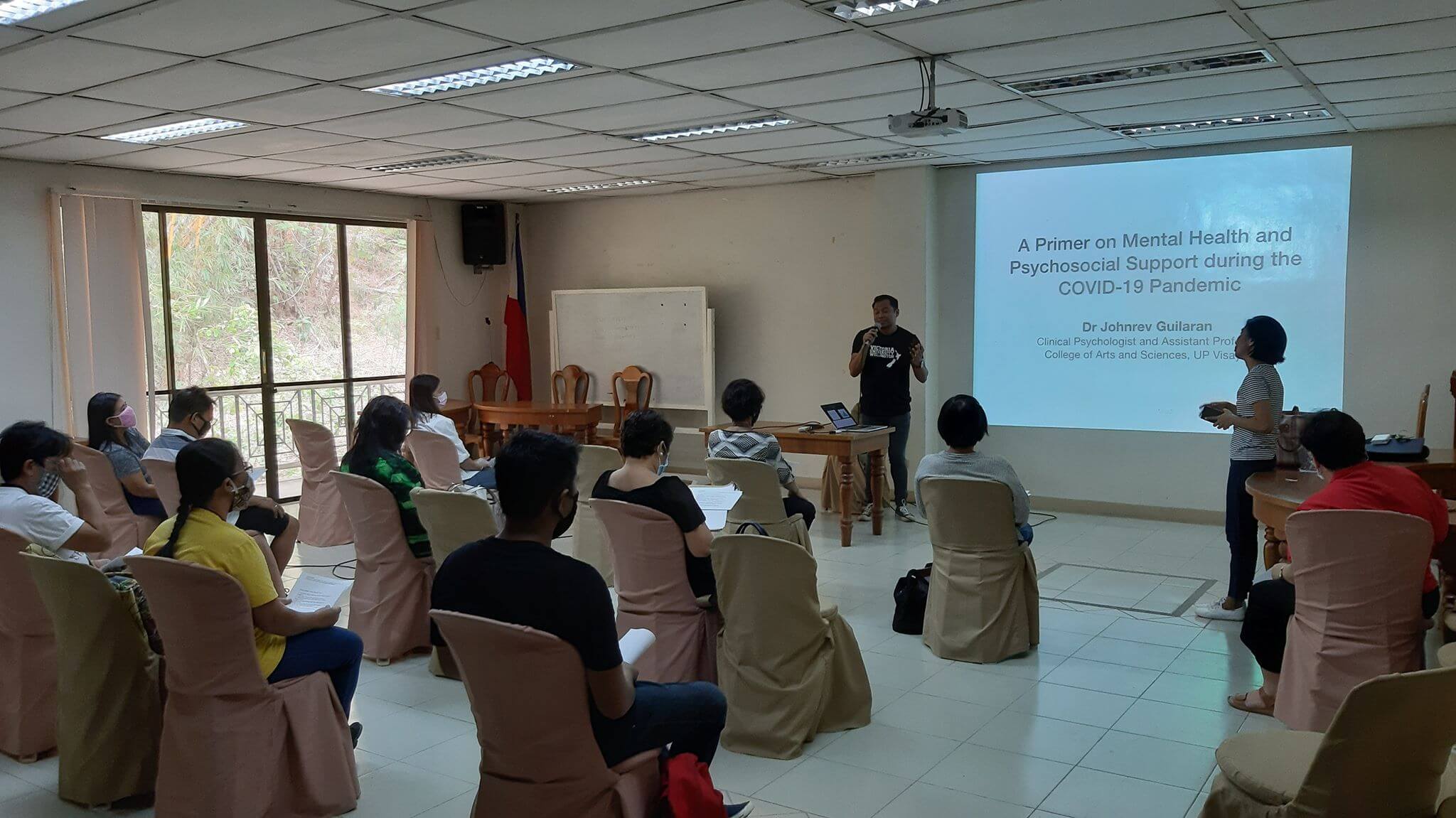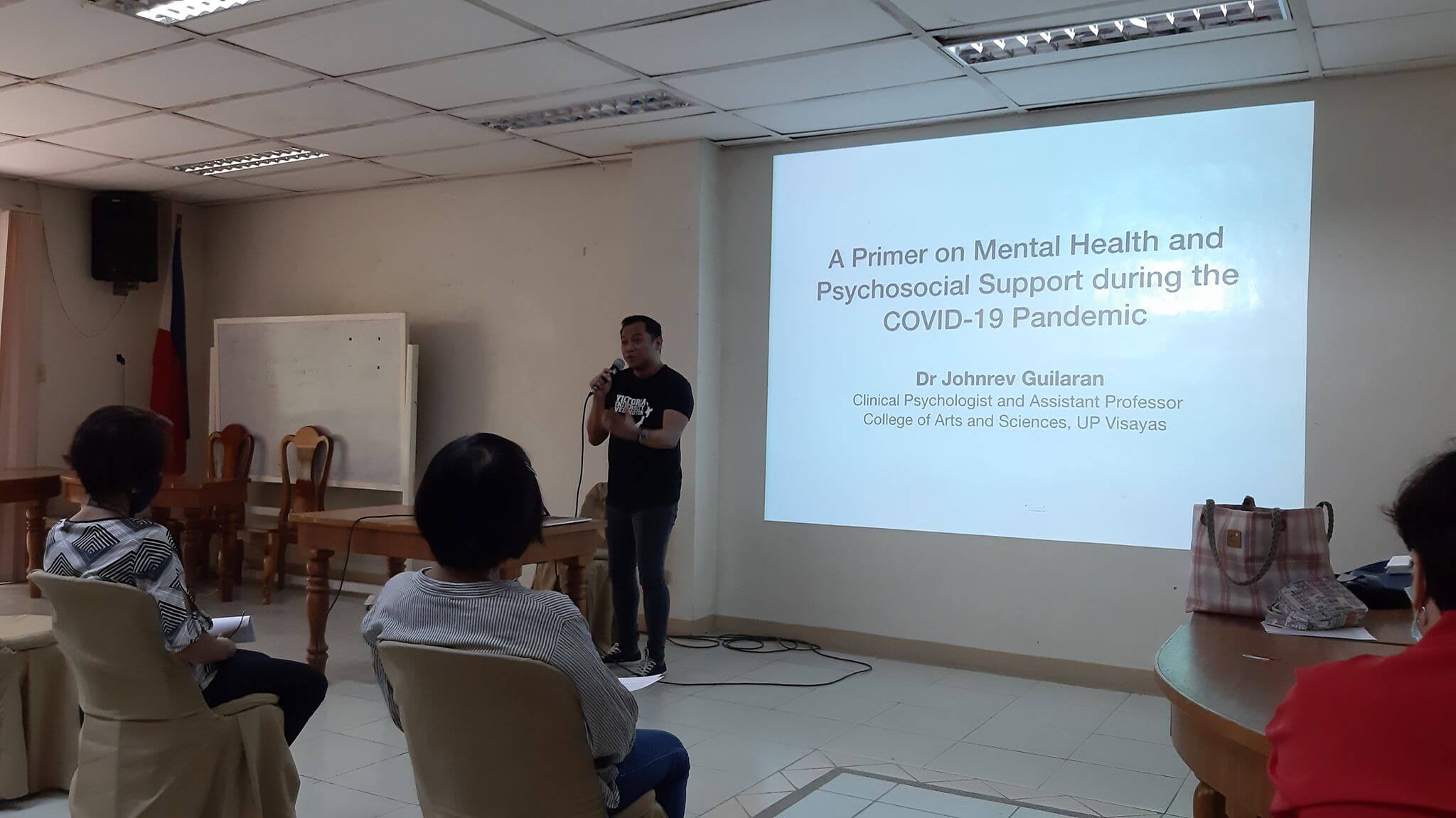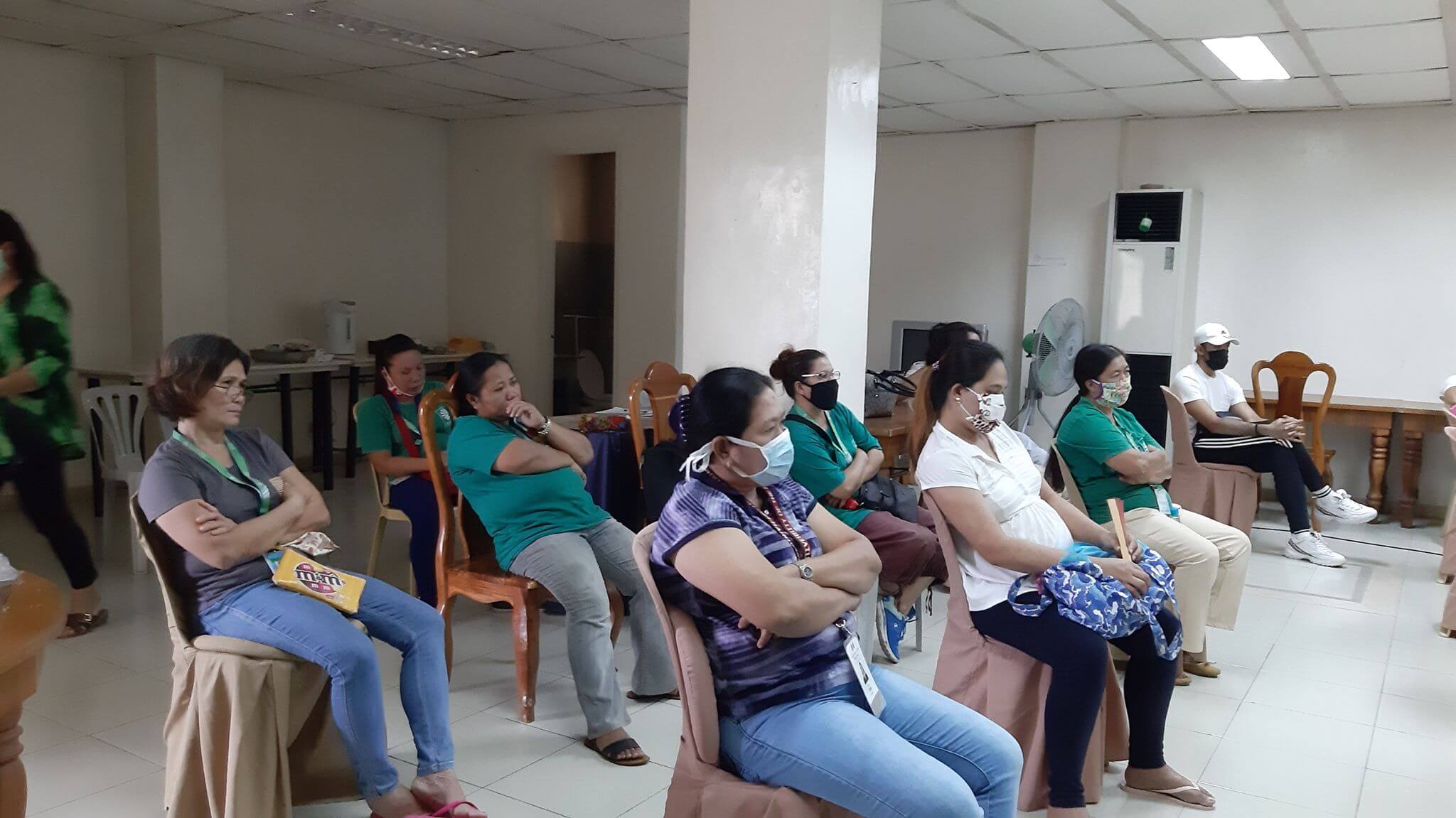
“During disasters, the most basic needs are to be attended,” says Dr. Johnrev Guilaran, clinical psychologist and assistant professor of the College of Arts and Sciences, UP Visayas during an orientation for the frontliners of the university’s six dormitories at the Miagao campus.
These included dorm managers, dorm staff and janitors assigned therein. The dorms continued their operation for the stranded students of UPV in view of the COVID19.
Guilaran explained that having hope, feeling safe, staying calm, being socially connected, and having self and community effectiveness are the five principles of psychosocial support. He emphasized that physical distancing is what is needed in the context of COVID19 because we need to maintain our social connectedness with our family and love ones, especially in these times.
He also explained what is Psychological First Aid, who can give this, and how this can be given. The important points he shared are:
• Psychological First Aid (PFA) is a humane, supportive short- to mid- term intervention to a suffering person who needs support and can both be provided by professionals and nonprofessionals. It is given from the immediate aftermath up to a month (or two), depending on the need. It should be provided in a safe space—both physically and psychologically.
• When providing PSA one needs to: assess the needs or concerns; provide practical care and support which does not intrude; address basic needs; listen to people but don’t force them to talk; comfort people, make them feel calm and at ease; help connect people to other services and sources of support; and protect people from further harm.
Guilaran also emphasized “what PFA is not:”
• It is not something that only professionals can do.
• It is not counselling.
• It is not debriefing—it does not necessarily involve a detailed discussion of the causes of distress.
• It is not asking someone to detail what happened and put it in a timeline.
• It is not pressuring people to tell you their feelings and thoughts.
When providing PFA one should be: honest and trustworthy; respect people’s right to make their own decisions; be aware of one’s own biases/prejudices; make it clear that even if they refuse your help right now, they can still come to you for help at a later time; respect privacy and confidentiality; behave appropriately; and consider the person’s age, culture, gender, etc.
Lastly, he emphasized that the action principles of the PFA include:
• LOOK. Check for safety, basic needs, distress reactions.
• LISTEN. Approach who may need support, listen to concerns and needs, help them feel calm.
• LINK. Help people access basic needs and concerns, give information, connect people with other sources of support.
Observing, physical distancing, the orientation was held on March 24, 2020 at the admin conference room, UPV Miagao campus. Also present was Dr. Marshaley J. Baquiano, member of the Psycho-Social Response Cluster of the UPV Disaster Command Center.


(This was originally posted on the UP Visayas website on April 15, 2020)
